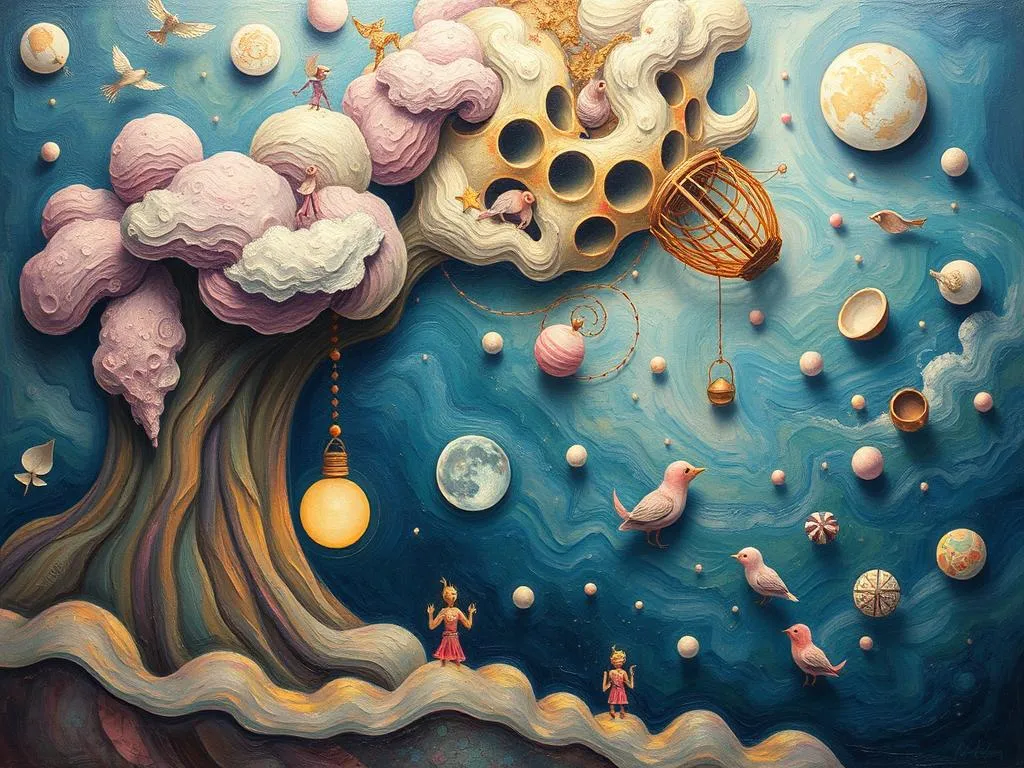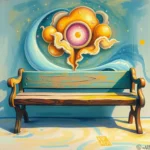
Dreams have long captivated the human imagination, serving as a portal into our subconscious, a realm where the ordinary blends with the extraordinary. Among the myriad types of dreams we experience, complicated dreams stand out due to their intricate narratives, bizarre scenarios, and emotional depth. These dreams not only pique our curiosity but also hold significant relevance in our waking lives. They often reflect our deepest fears, desires, and unresolved issues, making the exploration of their meanings all the more intriguing.
In this article, we will delve into the symbolism and meaning behind complicated dreams, explore various scenarios that can arise within these dreams, and connect the dream world to our everyday lives. By the end, we hope to provide you with a deeper understanding of your dreams and how they might relate to your personal experiences.
Symbolism and Meaning
Understanding the symbolism tied to complicated dreams requires a multifaceted approach. Each symbol can hold different meanings based on personal experiences, cultural backgrounds, and emotional states. For instance, a recurring symbol might represent a specific fear or aspiration unique to the dreamer.
One prevalent symbol in complicated dreams is water, which often signifies emotions and the subconscious. Calm waters may represent tranquility, while turbulent waters can indicate emotional turmoil. If you find yourself navigating through stormy seas in a dream, it may suggest that you are grappling with unresolved feelings or difficult situations in your waking life.
Another common symbol is being chased. This scenario can evoke intense feelings of anxiety and fear. Being pursued in a dream often reflects a desire to escape from certain responsibilities, relationships, or even aspects of one’s own personality that are difficult to confront. The identity of the pursuer can further illuminate what you may be avoiding; it could represent a specific person, a situation, or even an internal conflict.
Houses are also significant symbols in complicated dreams, often representing the self or different facets of one’s life. Dreaming of a house with many rooms might indicate the complexity of your psyche, suggesting that there are various aspects of your personality or life that you are exploring or perhaps neglecting. Discovering hidden rooms or passages can symbolize uncovering repressed memories or talents, while a dilapidated house may reflect feelings of neglect or personal disarray.
The emotional tone of the dream is equally important. Fear, joy, confusion, and relief can all shape the interpretation of the symbols present. For example, a dream that feels chaotic and frightening may indicate underlying stress in your life, while a dream filled with love and warmth could signify a desire for connection or fulfillment.
Key Scenarios and Variations
Complicated dreams can take on a multitude of forms, often influenced by the dreamer’s daily life and emotional state. For instance, a dream of failing an important exam can emerge during periods of stress or self-doubt. This scenario typically reflects feelings of inadequacy or the fear of not measuring up to expectations. However, if the dreamer is in a phase of self-discovery and growth, the same scenario might represent the fear of change or the anxiety of stepping into the unknown.
Another common scenario involves lost items. Losing a beloved object in a dream can symbolize feelings of loss or a desire for something that has slipped away in life. The significance of the lost item can provide further insight—losing a childhood toy may represent nostalgia and a longing for simpler times, while losing a job-related item might indicate fears surrounding career stability.
Flying is yet another frequent scenario in complicated dreams. While flying can evoke feelings of freedom and exhilaration, it can also represent the pressure of expectations or the desire to escape from life’s burdens. The conditions of flight—whether you are soaring effortlessly or struggling against the wind—can provide clarity on your emotional state and how you perceive your life’s challenges.
In some dreams, you might find yourself interacting with deceased loved ones. These encounters can be deeply emotional and often signify unresolved grief or a longing for connection. The nature of the interaction—whether comforting or conflict-ridden—can reveal how you are processing your emotions about that person’s absence.
Variations in these scenarios can profoundly alter the dream’s meaning. For example, dreaming of flying away from a problem suggests a desire to escape, while flying towards something may indicate an aspiration or goal you are striving to reach. Similarly, the emotional backdrop—whether you feel empowered or anxious during the flight—will influence how you interpret the experience.
Real-Life Connections and Takeaways
Understanding the connection between complicated dreams and real-life experiences is crucial for personal growth and self-reflection. These dreams often act as a mirror, reflecting our inner thoughts and feelings, and can serve as valuable tools for understanding ourselves better.
To connect your dreams to your waking life, consider keeping a dream journal. Recording your dreams upon waking can help you identify patterns, themes, or recurring symbols that might be relevant to your current life situations. Reflect on how the emotions felt during the dream relate to your daily experiences. Do you feel overwhelmed at work? Are there unresolved issues in your relationships? By drawing these connections, you can gain insight into what aspects of your life may need attention.
Additionally, consider the context of your life when interpreting your dreams. Are you going through a major life transition, such as a new job or relationship? Changes can stir up feelings of uncertainty, which may manifest in your dreams. By recognizing these connections, you can approach your waking life with a more conscious mindset.
Practicing self-reflection can also provide clarity. Ask yourself probing questions about your dreams. What emotions did you experience? What symbols stood out to you? How do these relate to your waking life? Engaging in this introspective process can unveil hidden fears or desires that may be influencing your actions and decisions.
Furthermore, consider seeking support from a therapist or counselor if your dreams are particularly distressing or if you find yourself struggling to navigate your emotions. Professionals can offer guidance and strategies for coping with complex feelings that may arise from your dreams.
Lastly, embrace the complexity of your dreams. Rather than seeking a single interpretation, allow yourself to explore the multiple meanings that can arise from a single dream scenario. Each dream is a unique tapestry woven from your experiences, emotions, and subconscious thoughts. By approaching dream interpretation as a journey of discovery rather than a destination, you may find yourself unlocking profound insights about your life.
In conclusion, complicated dreams serve as a fascinating window into our psyche, rich with symbolism and meaning. By exploring the various elements of these dreams—such as common symbols, scenarios, and their connections to real life—we can unveil layers of understanding about ourselves. As you navigate your dreams, remember to reflect on your experiences, emotions, and the messages they may hold. Embrace the enigma of your dreams and allow them to guide you on your path of self-discovery and growth.







